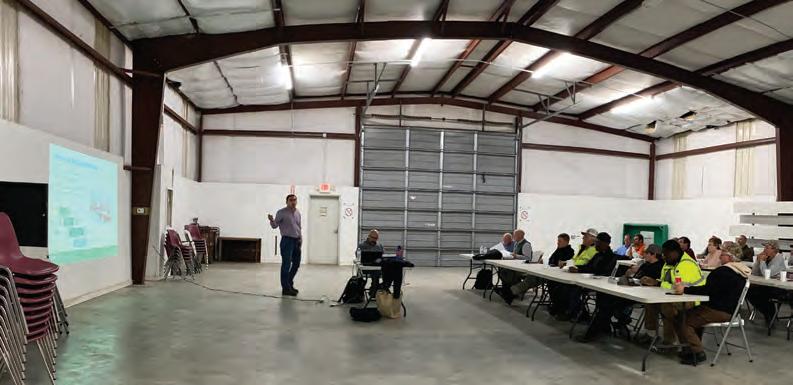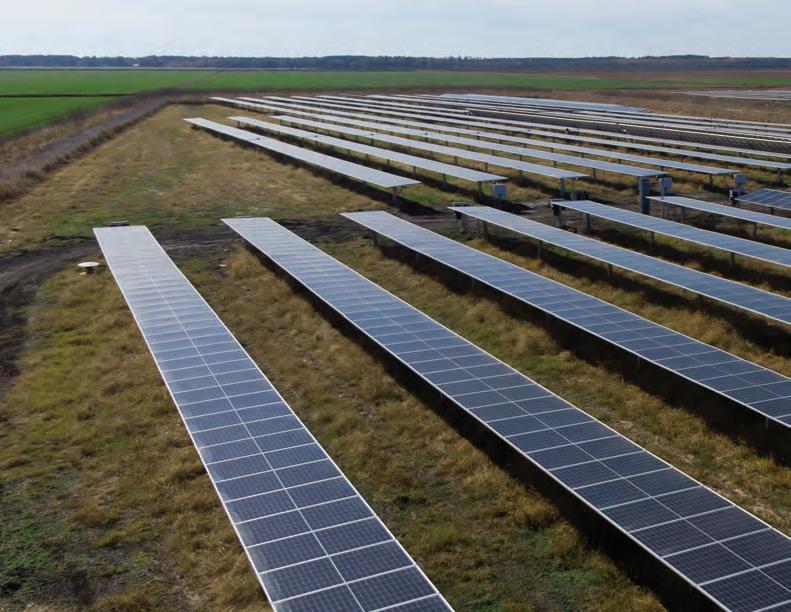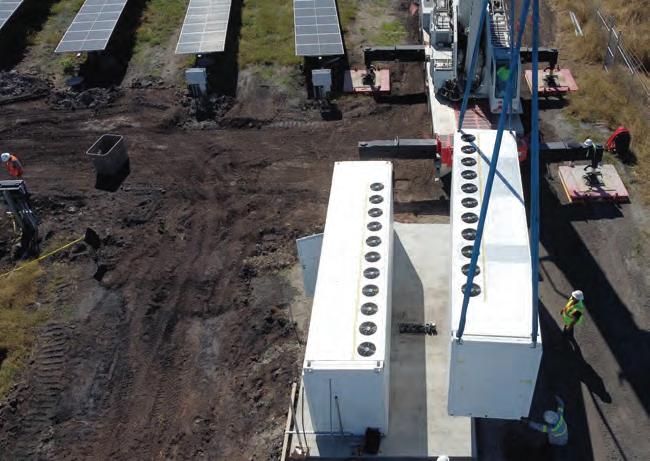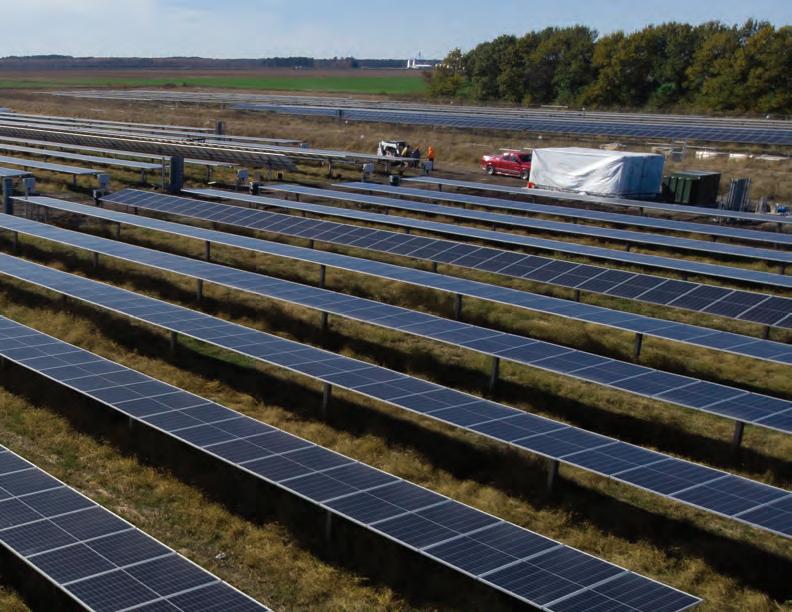
3 minute read
Energy Sense
from 2022-01-TEC
Space heater math
Space heaters can play a useful and even cost-saving role when properly utilized. For example, briefly using a space heater in the morning while showering or getting dressed can be more cost effective than raising the thermostat to warm up your whole house when you just want the temperature increased in a small bathroom. However, using a space heater to attempt as a room or home’s primary heating source can quickly increase your electric bill more than you might anticipate. Let’s look at the math:

At a 1,500-watt setting, a space heater will cost 11.49¢ per hour to operate. At that setting for eight hours of use the cost is 91.92¢. During a 30-day billing cycle that eight hours per day would consume $27.57 worth of electricity. If used 24 hours a day for 30 days, that one single space heater would add $82.71 to the monthly bill. And as noted on page B, overuse of a space heater could damage outlet wiring, contributing to a house fire. One final note: all electric resistance space heaters are created equal in terms of “efficiency.” A watt is a watt is a watt. The only real differentiation is related to safety features and thermostatic control options so choose wisely.

Rose Acre microgrid
North Carolina’s Electric Cooperatives have partnered with the nation’s second-largest egg producer, Rose Acre Farms, and Tideland EMC, to develop an agricultural microgrid that will deliver a variety of benefits including enhanced environmental sustainability and power grid resiliency.
Phase I of the project is nearly complete following the installation of a 2-megawatt solar array and a 2.5-megawatt Tesla battery pack that allows the energy generated by the panels to be stored and dispatched when needed. The solar production is expected to offset about a third of the energy consumed by the farm which is Tideland’s largest commercial account.
In addition to this new source of green energy, about 60 percent of the power Rose Acre already receives from Tideland comes from emissions-free nuclear and renewables. This helps Rose Acre meet sustainability goals that many of their customers require from vendors and in turn reduce their own carbon footprint.
LITHIUM-ION FIRE RESPONSE TRAINING IN PONZER. HEIDI SMITH PHOTO
2 MW SOLAR ARRAY AT THE ROSE ACRE EGG FARM. JIM CHRISMAN PHOTO
2.5 MW TESLA BATTERY PACK INSTALLATION JIM CHRISMAN PHOTO

During December final inspections and testing were taking place with commercial operation set to begin this January. In anticipation of the approaching start date, electric cooperative officials hosted a learning session for local volunteer fire fighters to
Continues on Page H


Rights-of-way maintenance schedule
Tideland has hired Lucas Tree Experts and Gunnison Tree to trim trees in our rights-of-way.
During January, Lucas will continue work on the Rose Bay circuit out of Tideland’s Ponzer substation along Hwy. 45 and Hwy. 264.
Gunnison crews will continue work on the Hyde County circuit out of the Pantego substation along Beech Ridge Road and Hwy. 264.
River City Construction continues work on the pole conversion project in the Bunyan area of Washington. A two-hour planned outage was conducted on November 18 to tie members into this newly rebuilt line. In total, more than 140 wooden poles have been replaced with new ductile poles for long-term system resiliency.
Lee Electric continues line construction work on the Dowry Creek circuit along Allen Road and on the Merritt circuit along Orchard Creek Road (Pamlico County).
Remember to support these important system maintenance operations. Proper tree care leads to greater system reliability.
Please observe proper distances when planting trees and erecting fences and other structures. And always call 811 before you dig to have underground utilities located before beginning an excavation or construction project.






